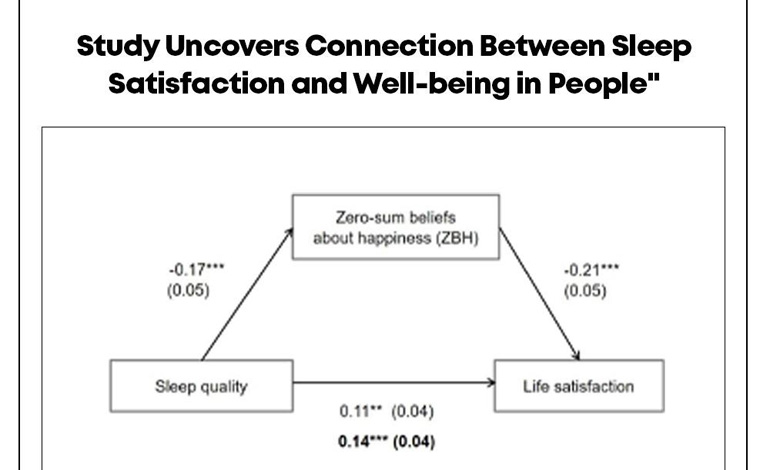Good sleep essential for better well being

Many scholars , and reserches shows that there is a direct relationship between Good sleep and better well being.
Good Sleep is not only essential for our physical health but also for our mental health and happiness which increases once ability to perform different tasks in living.
A person who takes a proper sleeps can perform much better in his daily and official life and have good physique in comparison to the people who doesn't take proper sleep.
One cognitive factor that might tie the relationship between sleep and life satisfaction is a belief about the (in) finite nature of happiness (zero-sum belief about happiness; ZBH), a mindset that occurs more under conditions of scarcity. Given the interconnections among experiences prompted by various types of scarcity (e.g., financial and calorie), we predicted that deprived cognitive resource caused by poor sleep may activate the ZBH, thereby hurting one’s life satisfaction. As expected, we found that sleep quality predicted the participants’ life satisfaction, even controlling for baseline variables. More importantly, this relationship was partially mediated by ZBH. This study opens interesting questions on a relatively unexamined role of non-social predictors, such as sleep, in well-being.
Cross-sectionally, a composite score of sleep health problems was uniquely associated with higher perceived stress and more chronic conditions, explaining additional variance that each individual sleep variable did not explain. Sleep duration – one of the most commonly researched dimensions of sleep – was not associated with either perceived stress or chronic conditions. Longitudinally, for individuals who had fewer chronic conditions at T1, having more sleep health problems was associated with an increase in chronic conditions at T2. Among the multiple dimensions, sleep satisfaction was most consistently and strongly associated with the outcomes.